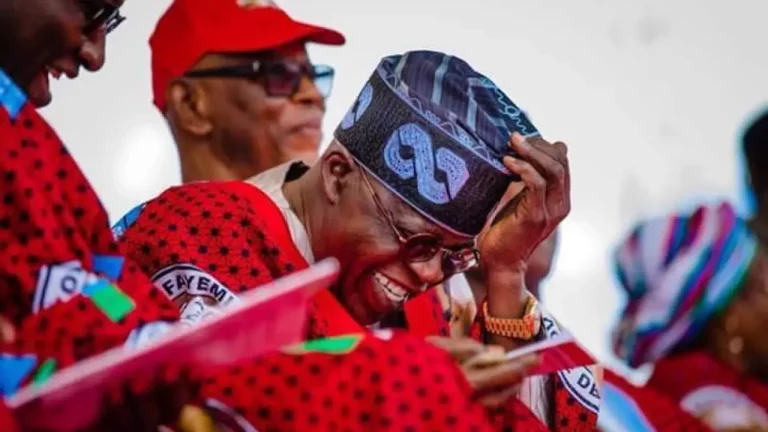The combined legal teams of President Bola Ahmed Tinubu and his party, the All Progressives Congress (APC), only required two days to mount a robust defence of his victory and fitness to stand in the February presidential election at the Presidential Election Petition Court.
Unwilling to accept defeat, Atiku Abubakar of the PDP and Peter Obi of the Labour Party teamed up as they did in 2019 when both vied unsuccessfully for the presidency as a candidate and running mate, to challenge Tinubu’s victory with sundry claims.
It includes allegations that INEC failed to comply with its own laws in its management of the election and other dramatic accusations that Tinubu was not qualified to participate in the election because he was allegedly convicted of drug-related offences in the United States of America and lacks academic credentials.
For several days, both parties, the PDP and LP, put forward multiple witnesses who, according to legal experts, merely submitted hearsays and circumstantial claims, most of which recognizably came from media reports of some of the issues in contention, including disputed essays from partisan hacks pretending to be practice investigative journalism.
Notwithstanding the failure of the witnesses to ground the parties’ allegations in fact, their supporters on social media spent each day exaggerating events that took place in court to inspire the false confidence that the tide was in their favour.
However, they were forced to confront reality this week when the legal teams of Tinubu and APC opened their defence and did a ‘slam dunk’ of factual evidence that neutralized all the allegations and firmly established Tinubu’s victory and his qualification to participate in the electoral process.
Tinubu’s lead legal representative, Wole Olanipekun SAN, presented volumes of documents that showed that the President not only obtained a degree from the Chicago State University in the US, but was also never on trial nor pronounced guilty of any crime in the country.
He tendered the president’s duly issued academic certificate from Chicago State University, as confirmed by the office of the registrar when asked for details in a public inquiry email. This was alongside details of the president’s Nigerian passport and a clearance letter from the US Embassy in Nigeria to the Nigeria Police Force.
The letter from the US Consular General in Lagos dated 4 February 2003 asserted firmly that President Tinubu had no record of criminal conviction or arrest in the US.
On top of that, he presented a star witness in the Senate Majority Leader, Michael Opeyemi Bamidele, a US-trained lawyer with decades of practice in the country and is thus familiar with its legal process. He upheld President Tinubu’s clean records, explaining that there can be no conviction without a formal charge. Indeed, the president was never charged by the US authorities, a fact that shows that there could have been no criminal conviction, as he was never put on trial.
Against such a barrage of facts and evidential claims, the distortions and falsehoods of the PDP and Labour Party stood no chance. No surprise then that Wole Olanipekun SAN thought it wise to save the court from needless elaborations by closing his defence, save in the knowledge that he has struck a well-aimed arrow at the faint heart of the opposition’s case.
As for INEC’s election management, the electoral body defended its integrity with facts showing an unprecedented level of compliance with laws and technological solutions introduced to checkmate rigging and other acts of electoral fraud. Also, the PDP and LP failed to prove beyond doubt that INEC’s claims of a server glitch, which slowed down its real-time updates of results, had any meaningful impact on the eventual outcome since the same results were certified okay and endorsed for adoption by the parties’ agents who were present at every collation point.

